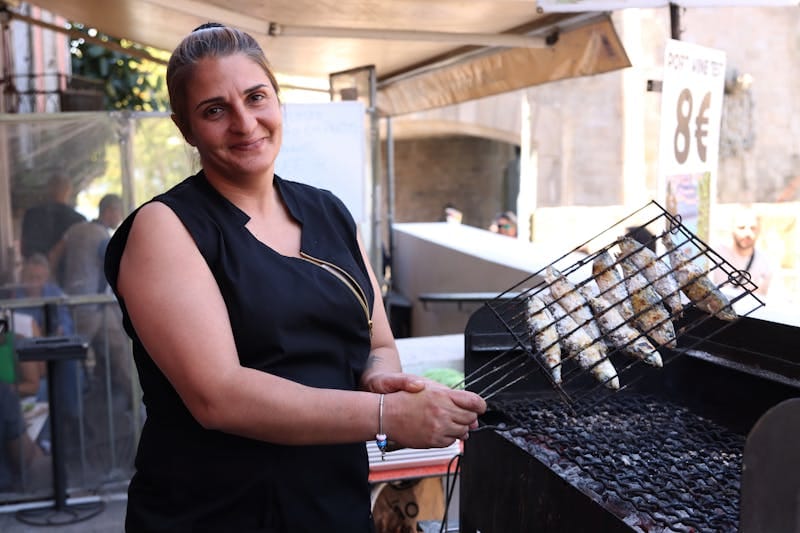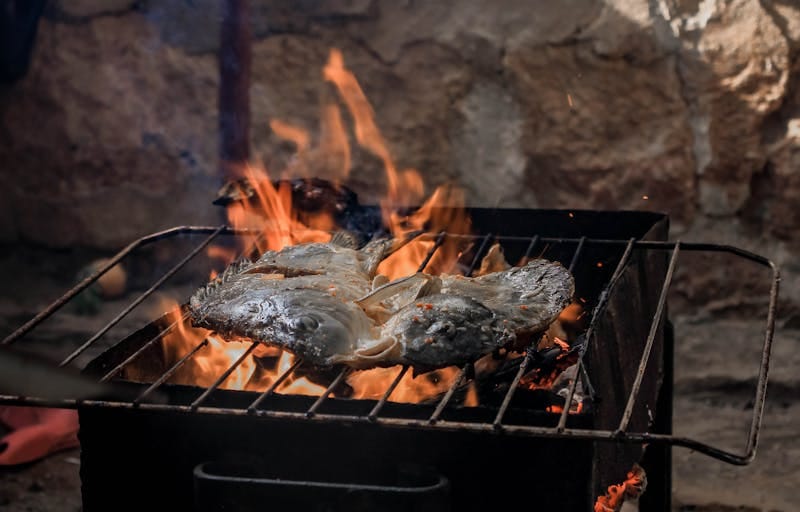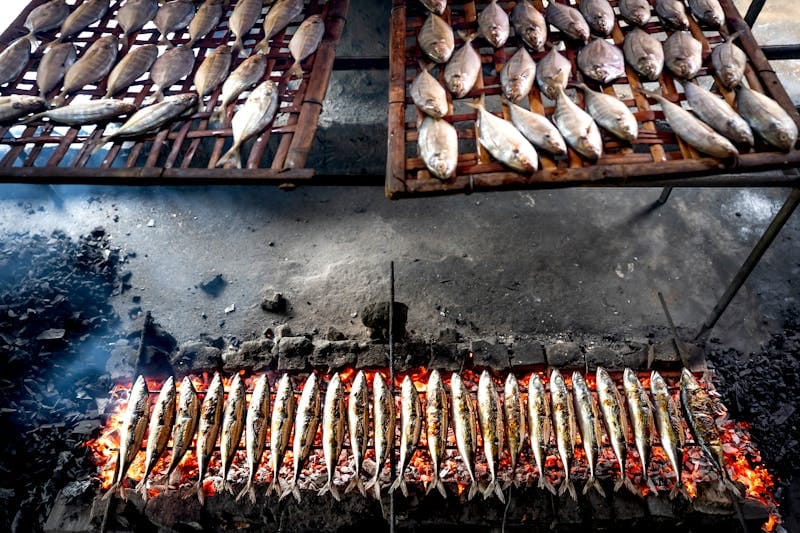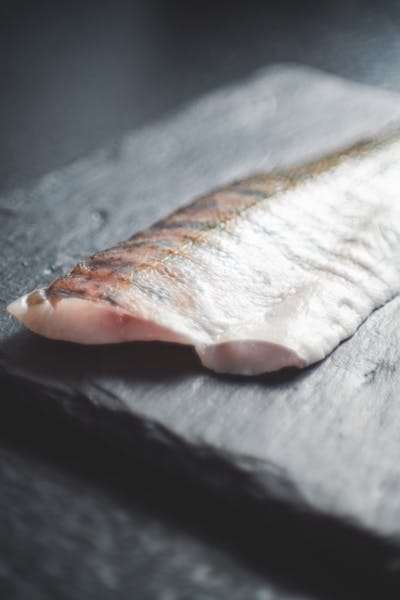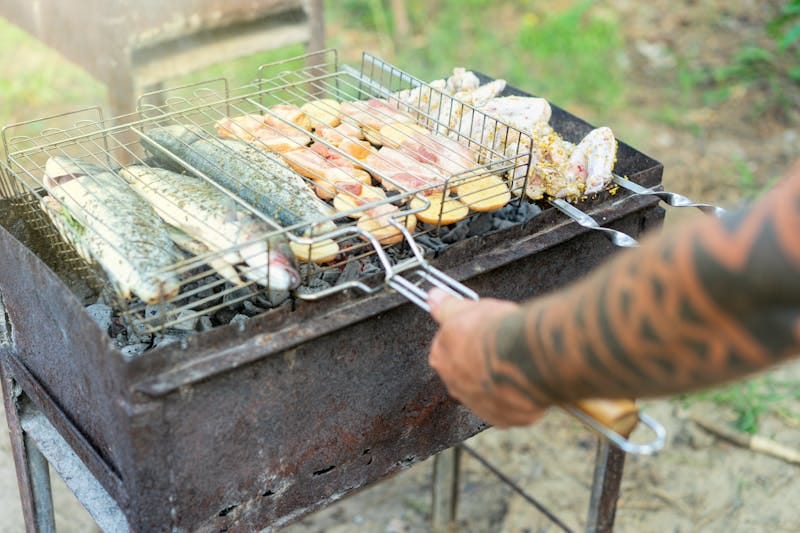How to Grill Fish – The Portuguese BBQ (Part 2)
It is no secret that the Portuguese love a good barbecue. In part 1 of this two-part series, you dove into the world of Churrasco
When most people think of barbecue, they associate it with well-seasoned meat that is cooked to perfection. But in Portugal, fish barbecues are just as popular. You have probably heard of Sardinhas Assadas
Besides, Portugal boasts over eight hundred kilometers of shore. Thus, you can expect to get top-quality fish almost anywhere. Still, there are a few secrets to know, and we are going to share them with you.
Your Guide to Portuguese Fish Grilling
Are you in love with Portuguese culture? Is your dream to learn Portuguese and find a home among the natives?
If so, you are not alone. Thousands of people visit Portugal each year and become captivated by the local language and customs. But learning Portuguese is challenging. There are complex grammar rules and unique sounds to master. It is easy to get overwhelmed.
That is where we come in. At Portuguese with Carla, we understand how challenging it is to learn a new language, and we want to help you conquer Portuguese. We have created an adventure that takes the mess out of learning and replaces it with fun. You will learn Portuguese instinctively as you follow a native couple while they unravel a family mystery. Click HERE to learn more and get your free trial!
Grilled fish is common in many cultures. Plus, with the rise of healthy cooking, it has become more popular. In Portugal, it is one of the most common and appreciated ways to cook fresh fish.
But what is the best way to choose your fish? How can you organize your fish grill, Portuguese style? What are the top techniques for grilling your fish? Keep reading as we take you on a step-by-step guide to Portuguese fish grilling!
Organizing and Shopping
The first thing to do for any barbecue is to decide how many people you will be inviting. According to that number, you will decide on starters, mains, side dishes, and desserts. You can write down a list to make shopping easier and ask your friends to bring something. Then, it is on to the essentials.
How to Pick the Best Fish
If you are passionate about cooking, you will love the local markets filled with fresh produce. They usually have many vendors and are bustling with locals and tourists. Visiting your local Praça
You will find many options when choosing fish caught on the Portuguese coast. When choosing fish for grilling, there are three aspects to consider:
Freshness
You want fish to be as fresh as possible. Fresh fish tends to have an unmatched, slightly sweet taste. A freshly-caught fish should have clear, bright eyes, firm flesh, and bright red gills.
The Type of Fish
Portuguese waters are all oceanic, but they have some influence from the Mediterranean Sea. Thus, the species found in Portugal are slightly different from those eaten in other European countries. In local markets, you will find everything from sea bream and swordfish to tuna and salmon. Other fish, such as horse mackerel, triggerfish, and Oceanic Bonito, are also common.
When ordering fish at the market, you can ask your local fisherman to clean and prepare your fish. Doing so will save you time and some of the work of preparing for the grill.
Fat Content
Fatty fish species, like sardines and sea bass, are usually great for grilling. Delicate fish, like sole and flounder, require more care. Still, they are good choices if you prefer a milder flavor and softer meat. Most of these fish species are commonly found in Portuguese waters and are staples of Portuguese cuisine.
What Fish Will You Choose?
Choosing fish is an art. As you have seen, you must learn to assess how fresh and fatty it is; you must also consider its flavor profile. Although it might be harder to find, line-caught fish are often the freshest and most sustainable option.
Much like Portuguese barbecue, the traditional grilled fish is usually a mix of different species. For example, common fish like tuna and swordfish are perfect for grilling and can be found in most markets. Still, your final choices will come down to what you love and want to present to your guests. You also want to think about the price, availability, and cooking time of the fish.
Among local favorites, you will find options like sardines, red snapper, sea bass, and sea bream. If you prefer an even more delicate flavor, you might opt for sole or flounder. However, these are usually more challenging to handle if you are not experienced at grilling.
Cooking and Serving
After gathering all of your ingredients, it is time to get your hands dirty. The next step is preparing and grilling the fish. In the meantime, you want to get on with the appetizers, side dishes, and desserts you will also serve.
Preparing The Fish for Grilling
To prepare fish for grilling, pat it dry with a paper towel. This will remove excess moisture, helping the fish cook more evenly. Then, season it with sea salt at least 10 minutes before cooking. Doing so will firm up the meat and guarantee a perfectly seasoned fish after grilling.
You can season the fish with pepper, aromatic herbs, garlic, and lemon. Alternatively, you can rub the fish with a little bit of olive oil before cooking. This way, you will prevent it from sticking to the grill grate.
If you are grilling a whole fish, make two or three diagonal cuts on each side. Doing so ensures the heat penetrates evenly and the fish cooks as it should.
Grilling Equipment and Techniques
Grilling fish does not require any special tools or equipment. You will need your regular barbecue and clean grill grates. You can buy the coals or prepare them yourself on a live fire. You can also use a gas grill. However, the most authentic way calls for a charcoal grill. This method also produces the best flavor.
In Portugal, most natives use double grill grates with handles. Some people prefer to oil the grill as well as the fish, but that is up to you. Once you have hot coals and everything set, it is time to get grilling.
Grilling Fish to Perfection
To grill your fish to perfection, you must start with a very hot grill. Do not press down on your fish with the spatula, avoid breaking the skin, and turn it once, when the skin starts to char. This technique, used by the pros, ensures the meat of the fish remains intact. If you are grilling pieces of fish, place them on the grill with the skin side down.
Fish is more delicate than meat, so depending on the type of fish you choose, you must control its closeness to the heat source. Cook delicate fish over indirect heat, using a grill basket or foil packet. This way, the skin will crisp up and the inside will cook to perfection.
Lastly, be careful not to overcook the fish. You want it to be cooked through, flaky, and juicy. You can use a thermometer to check the internal temperature and ensure even cooking.
Your Guide to Grilling Fish in Portugal
Grilling is an age-old technique that highlights the natural flavors of the fish. Its delicate fillets are juicy, slightly smoky, and absolutely delicious. You can experiment with different types of fish to find your favorites and enjoy a variety of delicious grilled fish dishes.
Remember to use the freshest ingredients and apply the best techniques to achieve incredible results. Keep your grill on high heat, but keep in mind that not all fish handle direct heat well. And have fun! You can taste a variety of delicious fish recipes by matching different aromatic herbs and seasonings.
There are many health benefits associated with eating grilled foods. They are much better for your heart health than fried foods. Additionally, fish contain omega-3 fatty acids and other nutrients. Thus, the only downside to learning how to cook fish Portuguese-style is that you will not want to have it any other way! Use the checklist below to organize your Portuguese fish grill.
Use This Checklist For an Authentic Fish Grill
Peixe e Legumes para Grelhar (Fish and Vegetables for Grilling)
- Peixe(Fish)
- Sardinhas(Whole sardines, cleaned but not filleted)
- Carapaus(Horse mackerel), small to medium-sized, gutted
- Dourada(Gilt-head bream), whole or fillets
- Robalo(Sea bass), whole or fillets
- Salmão(Salmon), thick fillets or steaks
- Atum(Tuna), thick steaks for grilling – not always available, but wonderful if you can find some.
- Sardinhas
- Marisco(Seafood)
- Camarão(Prawns or shrimp), peeled or whole with shell
- Lulas(Squid), whole or cut into rings/skewers
- Polvo(Octopus), pre-boiled and then grilled
- Camarão
- Pimentos(Bell Peppers)
- Red, green, and yellow peppers, whole or halved
- Cebolas(Onions)
- Large onions, peeled and halved or cut into thick rings for grilling
Ingredientes para Entradas e Acompanhamentos (Ingredients for Starters and Side Dishes)
- Pão(Bread)
- Any traditional crusty loaf
- You can also grill some slices to serve with fish and seafood
- Molho de Ervas ou Molho de Alho(Herb Sauce or Garlic Sauce)
- Great for drizzling over grilled fish or as a dip
- Para Salada Montanheira(Fresh salad)
- A fresh salad with tomatoes, onions, cucumber, olive oil, and vinegar
- Azeitonas(Olives)
- A mix of green and black olives seasoned in the traditional style
- Batatas(Potatoes)
- Boiled baby potatoes with skins (batatas a murro), smashed and grilled
- Alternatively, roasted or fried and seasoned with salt and olive oil
- Arroz(Rice)
- Arroz de tomate (tomato rice) or simple white rice
- Salada(Salad)
- Simple leafy greens such as lettuce, arugula, or rocket, sliced red onion, and grated carrots
Learn European Portuguese the Instinctive Way!
Meet The Journey – a shift from studying rules to feeling the language. By wrapping pronunciation, grammar, and conversation in an engaging adventure, your brain instinctively picks up the patterns, making fluency effortless and enjoyable.
Start your journey today!

